The fitness industry can be helpful and completely transform people’s lives. It can also be misleading and manipulative to profit off people’s insecurities. This article exposes the underbelly of the fitness industry and the marketing strategies it uses to profit off you. You’ll also learn what you can do to empower yourself and get aligned with what really works.
How Much is the Fitness Industry Worth?
The fitness industry is a 22 billion dollar industry. When you add “health” into the mix, the industry is worth $115 billion. What doesn’t get talked about enough is how much of that money is made by making people feel like they’re not good enough.
The fitness industry can be incredibly helpful, the problem is, a lot of what’s being sold as “health” is pure manipulation.
Unrealistic Standards: The Profit in Perfection
The fitness industry has long been rooted in monetizing women’s beauty ideals, marketing products and exercises designed to “help” women lose weight and get skinny. From the 1980s through the 2000s, the focus was on thinness at all costs, with endless aerobics videos, diet pills, and infomercials promising quick fixes for a “perfect body”. Today, the industry pushes unrealistic hourglass body standards with a thigh gap with the same supplements, programming, and fad diets.
This messaging has trained generations of women to believe that their worth is tied to their size versus focusing on strength, health, or confidence. The industry continues to prey on these insecurities, pushing programs and supplements that promise rapid weight loss instead of promoting sustainable health, strength, and true empowerment. The marketing to promote these quick fixes is often manipulative and/or misleading.
The Dark Side of Fitness Marketing
Supplement Marketing Tactics
Supplement companies are especially guilty for promoting their products in manipulative and misleading ways, often making whatever claims they want to back up their products because the supplement industry is not regulated and has no FDA oversight. Just because a supplement is sold in a store does not mean it’s effective or completely safe for you. For example, supplements market false claims of rapid results with misleading before and after pictures; most protein powders contain heavy metals; pre-workout supplements frequently claim to “supercharge workouts” without disclosing that the main active ingredient is caffeine; and “Proprietary blend” labels allow companies to hide the exact amounts of each ingredient, preventing consumers from knowing if there’s an effective dose.
There is only one supplement our fitness team recommends to almost everyone without seeing a blood test, and that is creatine monohydrate. There’s a lot of creatine myths out there, however, creatine monohydrate is extremely well-researched and has wide reaching health benefits.
Otherwise, you probably don’t actually need most supplements. The supplement industry is designed to get you to buy more products without ever learning what your body actually needs. What supplement and other health and wellness companies don’t want you to know is that with macro tracking, eating whole foods, working out and moving regularly, getting enough sleep, drinking enough water, and managing your stress levels with mindfulness practices, you don’t actually need many of the supplements you’re consuming.
However, supplements can be powerful if you’re deficient in something. If you take supplements, you should always understand what you need by getting blood work. Once you know what you need to supplement with, you need to research the quality of the ingredients of the supplement you’re putting into your body.
Social Media Marketing
Social media is a part of our lives. Many people compare themselves to what they see online, not realizing those images are edited, filtered, and posed. The content many fitness influencers create is designed to make you feel like you are not enough, even when what is posted isn’t real, then will sell a solution to make your body look like theirs through programs, restrictive fad diets, and products that they are paid to sell.
Take everything with a grain of salt. Social media is a highlight reel and gives unrealistic expectations, but can be a space for community, motivation, and education. Make sure you follow trainers and other influencers that educate, empower, and help you feel good in your own skin.
Do You Really Need That? Fitness Products That Waste Your Money
Pre-workout supplements: Most pre-workout supplements contain caffeine with amino acids, creatine, etc. The truth is, creatine is beneficial and can be taken on its own at any time, however, many other additives in a pre-workout supplement either might not be beneficial for you or they could just be something you’d get from a nutrient rich diet. If you like pre-workout, go for it! But don’t think it’s a requirement for getting a good workout in or seeing results.
Fat burners: Fat burners do not work! If you are wanting to cut and feel that buzzing effect, drink some coffee, track your calories, and eat at a deficit.
Terrible fitness programs: So called “programs” that aren’t thoughtful or progressive in natrure are designed to make you sweat and often involve intense cardio bursts. These tend to deliver lackluster results. Red flags for these types of workouts include circuits filled with burpees, box jumps, and endless EMOMs (every minute on the minute). While these workouts will get your heart rate up, make you sweat, and might leave you feeling accomplished afterward, they are primarily cardio-focused. Cardio is great for heart health, but it’s important to understand the difference between cardio and strength training for fat loss. If your goal is to build muscle and change your body composition, these types of programs won’t get you there alone and they might not be helping you if you’re overdoing it and not resting enough or recovering enough for the strength workouts.
Waist Trainers: Waist trainers are a snug, compression garmet that could actually atrophy your abs if you use it all of the time. Sometimes, bikini competitors will utilize waist trainers to help remind them to engage their core while they are on stage for long periods of time. There is no science showing that waist trainers can actually slim your waist long term, and it does not help strengthen core muscles the same way core exercises would.
How to Take Back Control of Your Wellness
Taking control of your own health and wellness means reframing what that looks like for you. Before you start another diet, fitness program, or buy supplements, get clear on what your personal fitness goals are. Make sure they are SMART (specific, measurable, achievable, relevant, and time-bound). You also need to first focus on your “big rocks”, which looks like adequate sleep, hitting your daily macros (especially protein), limiting processed foods, good programming with proper training intensity, and managing your stress levels. Knowing the benefits of walking and getting at least 8,000 steps in a day is also important. If you focus on these things, you most likely don’t need to spend money on expensive supplements.
Red Flags to Watch for in Fitness Advertising
The fitness industry primarily relies on fear-based marketing, which can actually be effective for sales in the short term. Fear-based marketing is a strategy that taps into people’s anxieties, insecurities, or perceived threats to prompt them to take action. In the fitness industry, this often means buying a product, service, or program, or starting a diet to gain relief or protection from something you’ve been made to fear—in this case, your own body.
A great example of fear based marketing goes all the way back in the 1920s with Listerine. Listerine ran an ad warning women they’d be ‘often a bridesmaid, never a bride’—all because of bad breath. Listerine even coined the word ‘halitosis’ to make bad breath sound like a medical issue. In the case of Listerine, the company literally invented a problem and created fear around it just to sell the solution. And it worked. In seven years, the company’s revenues rose from $115,000 to more than $8 million.
Fear-based marketing alone will eventually erode trust, increase stress, and contribute to poor body image or decision fatigue—especially in industries like fitness and health, where emotions are already closely tied to identity and self-worth.
Core Traits of Fear-Based Marketing:
- Triggers insecurities about appearance, aging, health, or self-worth
- Implies urgency (“before it’s too late”)
- Presents a single solution—usually the product or service being sold
- Often uses shame or guilt to drive action
- Creates a false binary: you either take this action or suffer the consequences
Taking Your Power Back from the Fitness Industry
You can empower yourself despite the noise happening around you in the fitness industry by focusing on your version of health and dialing in your “big rocks”. Your fitness journey is a lifelong endeavor, which means it needs to be sustainable. Cutting out entire food groups, beginning program after program, or purchasing $100 a month supplements that you don’t need is not sustainable. And most importantly, ditch the scale. Sustainable fitness is not a number.
Truly taking your power back means knowing how to listen to your body, eventually focusing on intuitive eating (and make sure you eat a lot, your body needs it), eating enough protein, doing activities you love, going for walks, getting good sleep, cutting back on your alcohol intake, and strength training to make your body strong and resilient.
When you take control of your health, there’s not much the fitness industry can profit from, because you’re simply choosing to live a healthy life. Sure, you might pay for a gym membership or equipment, but you’re no longer handing over money for quick fixes or gimmicks. Instead, you’re investing in what is sustainable.
Want to learn more about fitness industry profits and what you can do? Listen to episode 242 of the Stronger Than Your Boyfriend Podcast: How the Fitness Industry Profits Off Your Insecurity—and What to Do About It
At Barpath Fitness, our commitment is to help you sift through the BS of the fitness industry and engage with strength training and nutrition programming that works. Whether you’re looking for an online coach or program, you’ve got you covered.
You can download our 3 week guide to dialing in your nutrition for free HERE.
Sources Cited:
Munsey, C. (n.d.). Listerine: The life and times of the world’s best-selling mouthwash. Federation of Historical Bottle Collectors. Retrieved from https://www.fohbc.org/PDF_Files/Listerine_CMunsey.pdf



